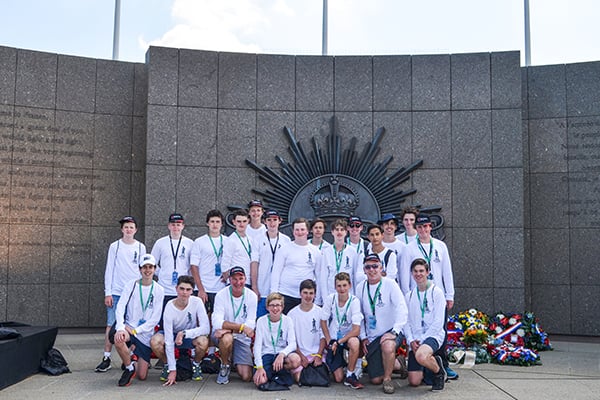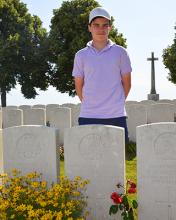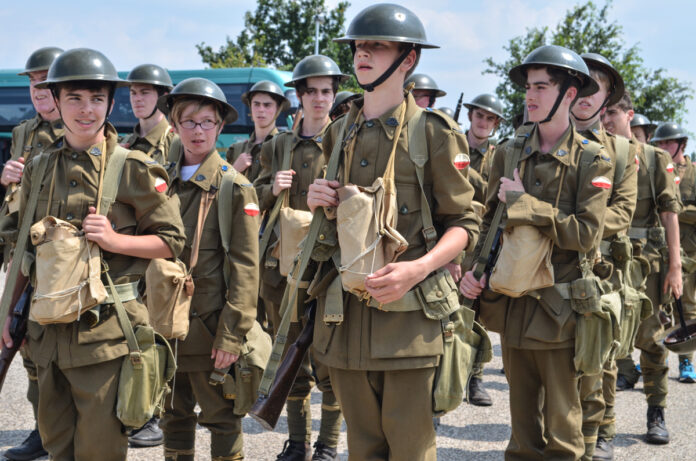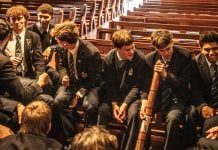History student Lloyd Skinner reflects on his experiences during a recent School tour to infamous WWI locations in France and Belgium.
Twenty history lovers and two teachers recently travelled to France and Belgium on a Battlefields Tour. We explored cemeteries and battlefields in infamous WWI locations including Normandy, the Somme, Verdun, Fromelles, Le Hamel and Villers-Bretonneux.

Our journey to the D-Day beaches was a rewarding experience for the students. Teachers had previously taught us about the effect this had on the outcome of WWI and the modern day. It meant that our visit to Pointe Du Hoc and Omaha Beach was a very surreal and powerful experience. Our background knowledge made the mammoth bunker constructions and the cemeteries mean a lot more to the group.

Most of the participants would agree that the ‘Life at the Front’ day was the best aspect of the tour. This involved dressing in full WWI uniform, with tin helmets and Lee Enfield rifles. We discovered the uncomfortable side of war through the hot and itchy uniforms, heavy rifles, uncomfortable shoes and a ‘fog-horn’ of a commanding officer, ‘Lieutenant’ Fergus Mitchell, screaming orders at the ‘platoon’.
Before we left for the tour, each student had researched an Old Melburnian who fought and died in WWI. During the tour, we pilgrimaged to the cemetery where they now rest, and presented their story to the group. The Old Melburnians who gave their lives for our country would probably not have foreseen us remembering their legacy 100 years later, which is what makes this exploration so extraordinary and cherished.
On our tour we experienced going over the top in trenches, dressing up in uniform in the ‘Life at the Front’ day, as well as visiting extraordinary museums such as the Sir John Monash Centre and locations of battles. We also researched a soldier’s own life and commemorated the war effort in the Hamel Centenary. However, we still cannot fully imagine the experience of the war.
It was 2nd Lieutenant John Alexander Raw who claimed how those “who have not seen it can hardly conceive the awfulness of it”. Here, he was meaning that, as we are not veterans of war and lack the experiences of the associated sight, sound, smell, and fear, we cannot even slightly fathom it. However, the tour compelled us to immerse ourselves in some recollections of war and enabled us to appreciate those who gave the ultimate sacrifice, those who gave up their today for our tomorrow.
Lloyd Skinner Year 11



